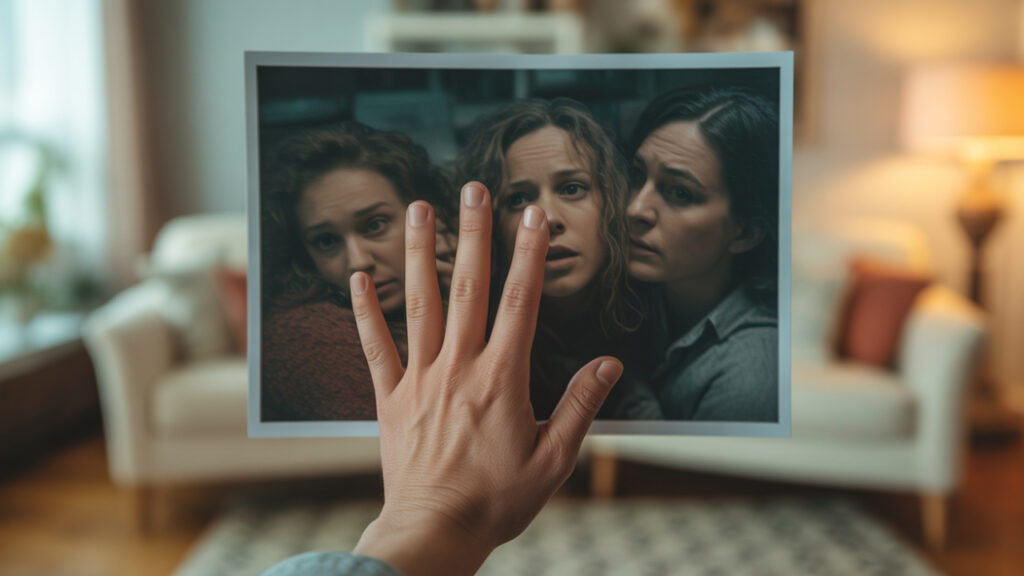False Memory OCD: Break Free From Doubt & Fear Today
What is False Memory OCD?
False Memory OCD is a subtype of obsessive-compulsive disorder. It involves intrusive thoughts that make a person believe they committed an act that never occurred. These mental images feel real, creating doubt, guilt, and distress.
Patients may replay the same memory repeatedly, searching for certainty. The mind struggles with uncertainty, often misinterpreting thoughts as reality. This pattern of fear and belief can trap individuals in compulsive behavior.

How False Memory OCD Affects the Mind
False memory OCD distorts memory recall. The brain reacts to intrusive thought images as if they are evidence of past events. This confusion can intensifies stress, shame, and uncertainty.
Anxiety disorder symptoms often appear alongside false memories. People may worry about morality, crime, or behavior they never engaged in. This cycle fuels rumination and compulsive checking.
Symptoms of False Memory OCD
Symptoms involve intrusive thought loops, guilt, and doubt. Patients often fear they harmed someone, lied, or acted immorally. These feelings bring strong emotions like fear, shame, and confusion.
Other signs include sleep deprivation, stress, and difficulty with coping. Constant rumination and distraction affect daily health, relationships, and confidence. In severe cases, distress may resemble psychosis.
The Role of Anxiety and Fear
Fear drives much of false memory OCD. The brain perceives a false memory as a threat. Anxiety rises when the person cannot find certainty about their past.
This worry builds into compulsive behavior, such as reassurance-seeking. Patients might ask health professionals, family, or friends for validation. This cycle strengthens the disorder instead of giving relief.
Common Themes in False Memory OCD
False memories often focus on morality, crime, or relationships. Scrupulosity may cause guilt about religious or ethical behavior. Others fear they acted in ways that conflict with personal beliefs.
Sexual orientation and identity may also become targets. Patients may experience intrusive mental images that feel vivid and disturbing. These memories are not evidence, but the distress can feel overwhelming.
Psychology and the Brain in False Memory OCD
Research shows that memory is not a perfect recording of past events. The mind reconstructs memories with perception, belief, and emotion. In false memory OCD, uncertainty alters how the brain processes recall.
Neurotransmitters like serotonin play a role in anxiety and OCD. Dysregulation in serotonin reuptake can affect mood, stress, and intrusive thought patterns. Psychiatry often uses this evidence to guide treatment.

Therapies That Help With OCD
Several therapies have proven effective for OCD treatment. Exposure therapy with response prevention (ERP) is considered the gold standard. This method exposes patients to intrusive thoughts while preventing compulsive behavior, helping the mind adapt to uncertainty.
Cognitive restructuring is also used in therapy. It helps patients identify unhelpful thought patterns, challenge distorted beliefs, and build new coping strategies. Over time, therapy reduces distress, restores confidence, and allows patients to live with less fear and doubt.
Therapy for False Memory OCD
Exposure therapy and response prevention (ERP) are the gold standard treatments. ERP helps patients face uncertainty without performing compulsions. This reduces distress and builds tolerance for doubt.
Cognitive restructuring may also support recovery. Therapy can help patients challenge unhelpful beliefs and emotions tied to memory confusion. Over time, patients learn to manage intrusive thought patterns.
Medication for False Memory OCD
Medication can help manage symptoms of false memory OCD. Selective serotonin reuptake inhibitors (SSRIs) are often prescribed. These medicines balance neurotransmitter function in the brain.
A physician or psychiatry specialist may also recommend other options. In cases with dual diagnosis, such as bipolar disorder or addiction, treatment may combine medication and therapy. Medicine supports symptom relief while patients build coping skills.
Lifestyle and Coping Strategies
Lifestyle changes can strengthen mental health. Regular sleep, exercise, and stress management improve brain and body health. Sleep deprivation and fatigue often worsen anxiety and intrusive thought loops.
Meditation, distraction techniques, and mindfulness can reduce rumination. Patients may also practice habits that build confidence and emotional balance. Over time, these coping strategies support therapy and medication.
The Role of Mental Health Professionals
A mental health professional guides the patient through recovery. Psychologists, psychiatrists, and therapists offer evidence-based treatment. These experts help patients build coping strategies while addressing emotional distress.
Accessibility and insurance coverage make treatment more achievable. Many therapy programs now offer remote sessions, increasing support options. A health professional can also evaluate dual diagnosis or co-occurring disease.
How Revival Mental Health Can Help
At Revival Mental Health in Orange County, patients receive treatment that combines evidence-based therapy, psychiatry, and lifestyle support. Our clinicians specialize in treating OCD, anxiety disorders, mood disorders, and dual diagnosis cases. Every patient is given an individualized plan that includes ERP, medication management, and coping strategies.
We also address co-occurring conditions like substance abuse or major depressive disorder, which often overlap with OCD symptoms. With accessible care, insurance verification, and a supportive treatment environment, Revival Mental Health helps patients find relief, rebuild confidence, and regain quality of life.
The Burden of Guilt and Shame
False memory OCD often fuels guilt and shame. Patients may feel immoral, untrustworthy, or dangerous. These emotions reinforce doubt and confusion.
Therapy focuses on separating thought from reality. Mental health treatment helps patients see false memories as intrusive thoughts, not evidence. This shift improves confidence and reduces distress.
False Memory OCD and Dual Diagnosis
Many patients with OCD also face dual diagnosis conditions. Anxiety disorder, mood disorder, or substance abuse may occur together. Addiction or alcohol use can worsen uncertainty and rumination.
A dual diagnosis approach treats both OCD and related diseases. This method improves long-term outcomes, health, and quality of life. It also reduces relapse risks by addressing the whole patient.
Research and Evidence for Treatment
Evidence shows ERP is the gold standard therapy for OCD. Randomized controlled trials confirm its efficacy in reducing compulsive behavior and intrusive thoughts. Patients report long-term relief with consistent practice.
Cognitive restructuring, meditation, and stress management also show benefits. Studies on serotonin reuptake highlight the role of medication. Ongoing research explores new medicine and therapy combinations.
False Memory OCD vs Normal Doubt
Everyone experiences doubt or uncertainty at times. However, false memory OCD magnifies these feelings to extreme levels. Normal recall errors do not cause the same distress or compulsive checking.
In OCD, patients struggle to separate misinformation from reality. The mind gets stuck in rumination, creating a cycle of fear and compulsive behavior. This difference helps health professionals identify the disorder.
Building Confidence in Recovery
Confidence grows as patients learn to manage uncertainty. ERP, lifestyle changes, and coping strategies help reduce doubt. Over time, patients experience more freedom from compulsions.
Relief is possible when patients accept uncertainty instead of chasing certainty. This mental shift reduces stress and builds healthier beliefs. With treatment, recovery becomes a realistic experience.
How Families Can Support Patients
Family support is important in OCD recovery. Patients often seek reassurance, which can reinforce the disorder. Loved ones must learn healthy ways to respond.
Therapy may include couples therapy or family sessions. Education helps families understand OCD and reduce enabling behaviors. This support improves outcomes for the patient.

Long-Term Management of False Memory OCD
OCD is a chronic disease, but effective management is possible. Therapy, medication, and lifestyle changes create lasting results. Stress management and relapse prevention help maintain progress.
Patients may continue with maintenance therapy or periodic check-ins. This ensures ongoing confidence, coping, and emotional health. With support, patients can live fulfilling lives.
FAQs
1. Can false memory OCD cause physical symptoms? Yes, false memory OCD can cause fatigue, sleep problems, and stress-related health issues. The constant worry and rumination often impact the body.
2. Is false memory OCD linked to psychosis? While intrusive memories may feel vivid, they differ from psychosis. Patients with OCD usually recognize doubt, while psychosis involves loss of reality.
3. Can meditation help with false memory OCD? Yes, meditation helps calm the mind and reduce rumination. It supports therapy by lowering stress and improving emotional regulation.
4. Does false memory OCD affect relationships? Yes, reassurance-seeking and doubt can strain relationships. Couples therapy and education help families support patients without reinforcing compulsions.





